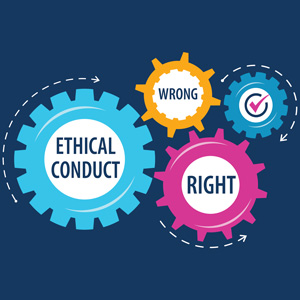Oct. 1, 2025 – In an ever‑shifting legal landscape, staying sharp is key. Whether your caseload involves family law, ethics, health law, or financial protection, this month brings targeted CLEs that deliver practical tools and fresh thinking. Here are four standout CLE programs worth your attention – click the titles to learn more.

6.0 CLE, 1.0 EPR; in person at the State Bar Center in Madison and via webcast 8:30 a.m. to 3 p.m. on Wednesday, Oct. 8, 2025, and via webcast seminar on specific dates through January 2026.
What do you do when a client’s spouse is tracking them with a GPS device or hiding assets in cryptocurrency? From digital discovery to virtual hearings, technology is transforming the way family law cases are handled – and how you practice. Whether you’re preparing exhibits or advising clients about internet usage during a pending action, staying current on the latest tech-related developments is essential.
Advanced Skills and Techniques for Family Law Practice 2025 tackles tech-related issues that can complicate custody, divorce, and financial disclosure. Join seasoned attorneys for a deep dive into the tools, trends, and ethical considerations shaping family law practice today. You’ll pick up best practices and strategies grounded in real-world experience. Learn how to:
- identify and address online risks to children, including cyberstalking and inappropriate content sharing;
- counsel clients regarding their internet usage and their children’s usage during a pending action;
- strengthen your discovery requests to secure the data you need;
- understand how cryptocurrency works and how to value it accurately; and
- confidently manage electronic exhibits and present effectively in virtual hearings.

1.5 CLE; in person at the State Bar Center in Madison and via webcast Noon to 1:30 p.m. on Monday, Oct. 20, 2025, and via webcast seminar on specific dates through January 2026.
Elder financial exploitation isn’t always obvious – and it doesn’t always involve strangers. From forged checks to abrupt changes in powers of attorney, abuse can come from caregivers, family members, or even trusted professionals.
When the numbers don’t add up, paralegals are often the first to notice signs that something is amiss. But recognizing and responding to financial abuse requires proper training and practical tools.
Securing Futures: Paralegals as Advocates Against Financial Exploitation gives you the knowledge and strategies to help detect, prevent, and respond to abuse before it causes lasting harm. Through real-world case studies, you’ll examine the systems and statutes designed to protect vulnerable adults and the crucial role you can play in protecting them. You’ll learn how to:
- identify different forms of financial exploitation and the harm they cause to older clients;
- understand the legal mechanisms available to protect elders from abuse;
- implement effective detection and prevention methods to safeguard clients;
- strengthen case management skills for matters involving financial abuse and elder rights; and
- address ethical responsibilities when handling sensitive financial information.

3.0 CLE, 3.0 EPR; in person 8:30 to 11:15 a.m. on Thursday, Oct. 2, 2025, at the Ingleside Hotel in Pewaukee; and via webcast seminar on specific dates through May 2026.
Every year brings new ethical challenges, and 2025 is no exception. From shifting roles to unexpected client conduct, lawyers must be prepared to make decisions that are not only strategic but ethically sound.
Legal Ethics 2025 delivers a comprehensive, Wisconsin-focused update on the most pressing issues in professional responsibility today. It’s your chance to ask questions about your ethical duties and to review the implications of your actions when working with clients.
Our panel will explore the ethical implications of situations where professional duty meets personal risk, shifting relationships, or blurred roles. You’ll get the latest guidance from recent Wisconsin and American Bar Association (ABA) ethics opinions, plus practical insights on how they apply in your day-to-day work.
Learn how to approach complex dilemmas like:
- acting as both advocate and witness in a client matter;
- knowing when and how to withdraw from a difficult representation under SCR 20:1.6(b)(1);
- responding when a client commits a crime against you or someone close to you; and
- managing firm transitions and practicing across employers.

4.5 CLE, 1.0 EPR; in person at the State Bar Center in Madison and via webcast 8:30 a.m. to 12:30 p.m. on Tuesday, Oct. 28, 2025, and via webcast seminar on specific dates through January 2026.
The rules governing Medicare and Medicaid benefits are complex, with implications that span multiple legal practice areas and diverse client needs. Estate planning, elder law, personal injury, and worker’s compensation practices intersect with Medicare and Medicaid in ways that carry high stakes for clients (and risks for attorneys).
Staying current on federal enforcement and state-level changes is crucial for protecting both your clients and your practice.
Navigating Medicare and Medicaid sheds light on the issues that attorneys face most frequently, providing practical solutions from practitioners who know how to integrate these programs into real-world practice. You’ll learn how to:
- break down the mechanics of Section 111 reporting and evaluate enforcement trends;
- identify distinctions between Medicare and Medicaid coverage, eligibility, and limitations;
- analyze recent federal legislation and its potential impact on Wisconsin’s Medicaid programs;
- incorporate special needs trusts and ABLE accounts into long-term planning strategies; and
- strengthen the way you communicate with and advocate for clients with limited cognitive capacity.
There’s More
Visit
Wisbar.org’s Marketplace to see schedules, credit details, and registration options, and
use this link to see what else is coming this month in October. Many programs offer both in‑person and webcast formats, so it is easy to reserve your spot.
